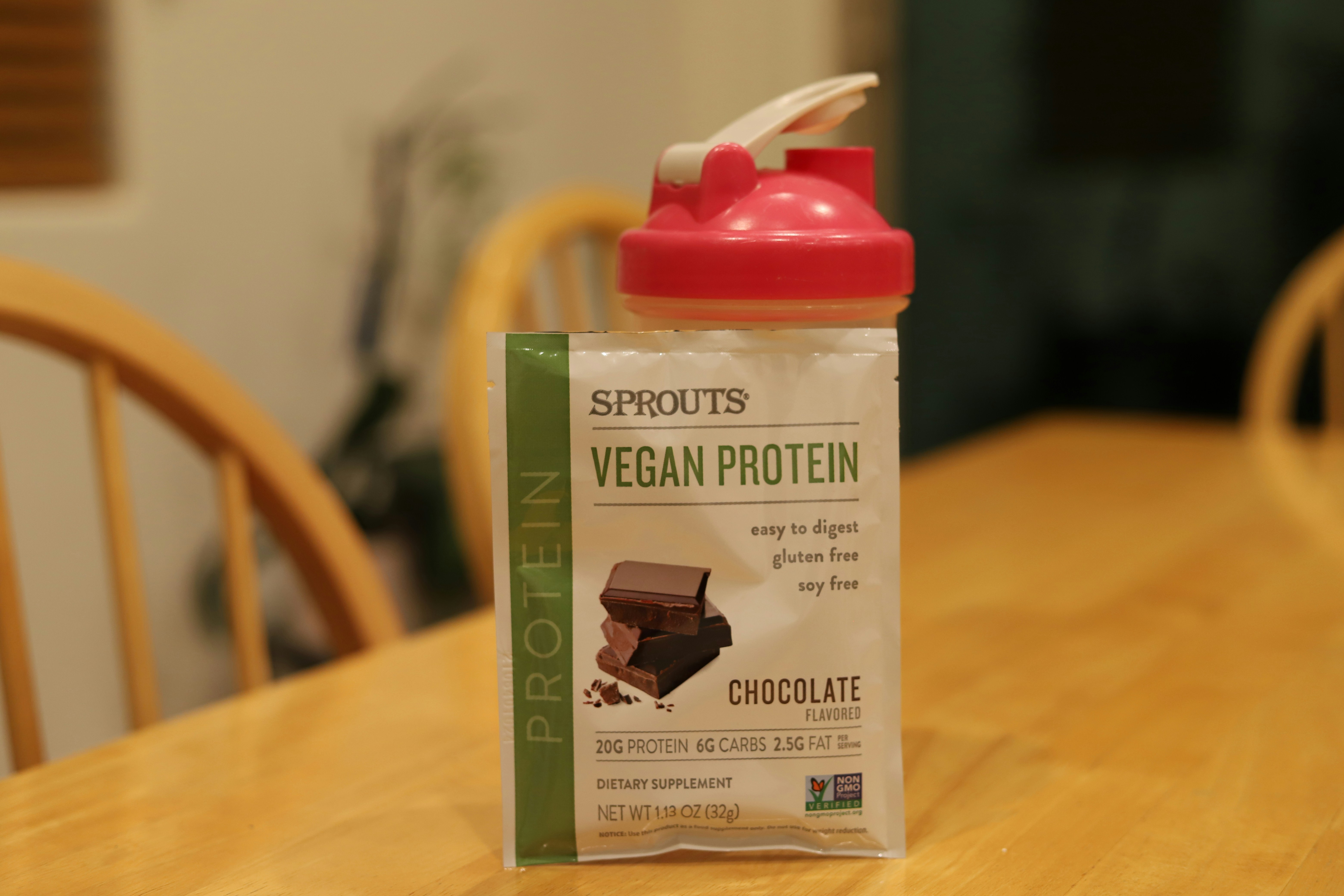Understanding Gluten-Free Protein Powders
Gluten-free protein powders are dietary supplements derived from various protein sources that do not contain gluten, a group of proteins found primarily in wheat, barley, and rye. These powders are essential for individuals with gluten sensitivities or celiac disease, as the ingestion of gluten can lead to severe intestinal reactions and long-term health implications. For those engaged in fitness and seeking to maintain an optimal diet, selecting gluten-free options can be crucial for achieving health goals while avoiding adverse reactions.
Unlike conventional protein powders, which may contain gluten-containing grains or additives, gluten-free protein powders prioritize safe ingredient sourcing. Common gluten-free protein sources include whey, casein, egg white, rice, peas, and hemp. These alternatives not only provide essential amino acids necessary for muscle repair and growth but are also formulated to ensure they are free from gluten contamination. This distinction is vital for fitness enthusiasts who require high-quality protein without the risk of gluten exposure.
Furthermore, nutrition plays a significant role in the selection of protein powders. It is important for athletes and active individuals to choose products that deliver a balanced amino acid profile and additional nutritional benefits. High-quality gluten-free protein powders will often boast a blend of protein sources to maximize amino acid diversity, which is necessary for effective recovery post-exercise. Additionally, these products might incorporate added vitamins and minerals that cater to the nutritional needs of fitness enthusiasts.
Overall, understanding gluten-free protein powders is essential for those who must avoid gluten while pursuing fitness objectives. By selecting the right protein sources that are both gluten-free and nutritionally rich, individuals can bolster their dietary regimen and enhance their fitness journey effectively.
The Benefits of Choosing Gluten-Free Protein Powders
In recent years, gluten-free diets have gained popularity, not only among individuals with gluten intolerance or celiac disease but also among fitness enthusiasts and health-conscious consumers. One of the primary benefits of incorporating gluten-free protein powders into your diet is enhanced digestibility. Many individuals find that gluten-free protein sources, such as whey isolate, pea protein, or brown rice protein, are easier on the digestive system, leading to less bloating and discomfort during and after workouts.
Furthermore, gluten-free protein powders can support muscle recovery following intense physical activity. They provide the essential amino acids necessary for muscle repair and growth, making them an ideal post-workout supplement. The absence of gluten also means that those sensitive to it can focus on their nutritional goals without risking gastrointestinal distress. Consequently, gluten-free protein powders serve a dual purpose: they aid in recovery while addressing specific dietary requirements.
For individuals pursuing weight management or muscle building, gluten-free protein powders present additional advantages. In many cases, gluten-free varieties are lower in carbohydrates and sugars, which can help regulate caloric intake and promote overall health. The protein content, which is typically higher in these products, supports a feeling of fullness, potentially reducing the number of snacks consumed throughout the day. Moreover, incorporating gluten-free protein sources allows for versatility in meal planning. They can be easily added to smoothies, oatmeal, or baked goods without compromising on taste or texture, ensuring that users maintain energy levels during workouts.
Ultimately, gluten-free protein powders enable fitness enthusiasts to meet their nutritional needs while catering to dietary restrictions or preferences. This makes them an excellent addition to any diet, promoting both health and athletic performance.
Criteria for Selecting the Best Gluten-Free Protein Powder
Choosing the right gluten-free protein powder is essential for fitness enthusiasts seeking to enhance their nutrition while avoiding gluten. To streamline this selection process, it is beneficial to consider several important criteria that can influence the quality and effectiveness of the protein powder.
First and foremost, ingredient quality plays a pivotal role. It is advisable to opt for protein powders that use high-quality sources, such as whey, pea, or brown rice protein, as they provide essential amino acids necessary for muscle recovery and growth. Furthermore, it is crucial to ensure that the product is certified gluten-free, which eliminates the risk of cross-contamination with gluten-containing substances.
Next, the amino acid profile is a significant factor to evaluate. A complete protein source contains all nine essential amino acids that the body cannot synthesize. For those who engage in intense physical activities, a protein powder with a balanced amino acid profile will aid in muscle repair and development, making it a valuable addition to their supplementation routine.
Taste is another critical element, as a protein powder that is unpalatable can deter adherence to a fitness regimen. Sampling various flavors, or reading reviews from others, can provide valuable insights into the taste and mixability of a product. Additionally, brand reputation should not be overlooked. Well-established brands often have a track record of quality assurance and transparency regarding their ingredients and practices.
Finally, exploring additional nutritional benefits can enhance the appeal of gluten-free protein powders. Some products may include added vitamins, minerals, or fiber to boost overall nutritional value. Thus, considering these criteria will help in selecting a gluten-free protein powder that not only meets dietary restrictions but also supports fitness goals effectively.
Top Gluten-Free Protein Powder Brands Reviewed
In the pursuit of fitness, finding the right protein powder can significantly impact one’s performance and recovery, especially for those adhering to a gluten-free diet. Below is a curated selection of some of the top-rated gluten-free protein powder brands that cater to various dietary needs, including options for vegans and those seeking clean, high-quality ingredients.
1. Orgain – Orgain offers a range of gluten-free protein powders that are both organic and plant-based. Their protein powders are formulated using a blend of pea, brown rice, and chia seed proteins, providing a complete amino acid profile. The Creamy Chocolate Fudge flavor is particularly popular among users for its rich taste without any artificial sweeteners.
2. Garden of Life – This brand emphasizes whole food ingredients and offers a certified organic, gluten-free protein powder. The protein content comes from pea protein, sprouted grains, and seeds, which makes it an ideal choice for those looking for a nutrient-dense option. The Raw Organic Protein powder is a standout for its versatility and digestibility.
3. Naked Nutrition – For those who prefer minimal ingredients, Naked Nutrition delivers gluten-free protein powders that contain only pure sources. Their Naked Pea Protein is made from yellow peas harvested in North America, ensuring the highest quality and no additives. This option is favored for its clean taste and straightforward ingredient list.
4. Sunwarrior – A great option for vegan fitness enthusiasts, Sunwarrior offers a gluten-free protein powder derived from a fusion of brown rice and pea protein. Their Warrior Blend is notable for its unique combination of superfoods, intended not only to support muscle recovery but also overall health. Chocolate or Vanilla flavors make it a palatable choice for any diet.
Each of these brands provides a unique perspective on gluten-free protein powders, catering to various preferences and dietary requirements. They are well-rated by consumers, ensuring that athletes and fitness enthusiasts can find a product that aligns with their specific nutritional goals.
Real User Experiences: Testimonials and Reviews
As the popularity of gluten-free protein powders continues to grow, numerous fitness enthusiasts have shared their experiences with various brands, shedding light on taste, mixability, and performance. For many, transitioning to a gluten-free diet does not mean sacrificing flavor or effectiveness. One user, a seasoned bodybuilder, praises a specific gluten-free protein powder for its exceptional taste and smooth texture. “I’ve tried multiple types, and this one mixes seamlessly without leaving any gritty residue,” he remarked. His positive feedback highlights the importance of mixability, which can significantly influence the overall user experience.
Another avid gym-goer emphasizes the impact of gluten-free protein powders on their fitness journey. “After switching to a gluten-free option, I noticed a considerable improvement in my digestion and energy levels,” she recounted. This aligns with the feedback from many users who report enhanced performance and recovery times after incorporating gluten-free protein powders into their diets. Such testimonials underscore the potential health benefits that come with opting for gluten-free supplements.
Furthermore, a casual fitness enthusiast shared how a gluten-free protein powder has become a staple in their post-workout routine. “I love the versatility of the flavor options, which make it easy to integrate into smoothies or oatmeal. It has transformed my meals,” they noted. User experiences like this illustrate that not only do these products provide essential protein, but they also enhance the overall enjoyment of nutritious eating.
User testimonials suggest that gluten-free protein powders possess the ability to cater to a diverse range of dietary preferences without compromising on quality or results. By examining their experiences, potential buyers can make informed decisions tailored to their fitness goals and personal tastes.
How to Incorporate Gluten-Free Protein Powder into Your Diet
Incorporating gluten-free protein powder into your daily nutrition can be both simple and enjoyable. This versatile supplement can enhance your meals and snacks, helping you meet your protein needs while adhering to a gluten-free lifestyle. Below are some creative ways to utilize gluten-free protein powder in your diet.
One of the most popular methods is blending protein powder into smoothies. This delivers a nutrient-dense drink, perfect for breakfast or post-workout recovery. Combine your favorite fruits, a tablespoon of gluten-free protein powder, and a liquid base, such as almond milk or coconut water, for a delicious and energizing start to your day. For added nutrition, consider throwing in greens like spinach or kale; they blend seamlessly without altering the flavor significantly.
Another enjoyable way to include gluten-free protein powder is through baked goods, such as protein pancakes or muffins. Substitute a portion of your flour with protein powder in your pancake mix, and you’ll create a hearty breakfast option that supports muscle recovery and satiety. Alternatively, delicately incorporate gluten-free protein powder into your muffin batter, allowing you to enjoy a sweet treat that packs a nutritional punch.
For those who appreciate convenient snacks, homemade protein bars can be an ideal solution. Mix together gluten-free oats, nut butter, honey or maple syrup, and protein powder to create a delicious mixture that can be pressed into a pan and chilled. Cut into bars for a quick grab-and-go option that nourishes your body with adequate protein and energy, making it perfect for on-the-road fueling.
By exploring these creative recipes, you can effortlessly integrate gluten-free protein powder into your diet, enhancing both the flavor and nutritional value of your meals.
Potential Drawbacks and Considerations
While gluten-free protein powders can be a suitable alternative for many individuals, particularly those with gluten sensitivities or celiac disease, it is essential to be aware of some potential drawbacks associated with these products. One key consideration is the risk of high sugar content in flavored protein powders. Many manufacturers enhance the taste of their products by adding sugars or artificial sweeteners, which can compromise the overall health benefits of consuming protein. Fitness enthusiasts should carefully scrutinize nutritional labels to ensure that the protein powder aligns with their dietary objectives.
Another important consideration is the need for a balanced diet. While incorporating gluten-free protein powders can help in achieving daily protein goals, it is crucial to complement these powders with other essential nutrients. Relying solely on protein supplements without including a variety of whole foods may result in nutritional deficiencies. Consumers should aim to consume a diverse diet that includes plenty of fruits, vegetables, whole grains, and healthy fats, thereby supporting overall health while using protein supplements as intended.
Lastly, it is vital for consumers to be cautious of low-quality products that may be mislabeled as gluten-free. Some protein powders may contain cross-contaminated ingredients or may not undergo rigorous testing to verify their gluten-free status. To avoid purchasing such products, individuals should research reputable brands, read reviews, and check for certifications or lab testing verifications, ensuring that the protein powder they choose meets their gluten-free requirements as well as their quality standards. By being mindful of these factors, consumers can make informed decisions about the gluten-free protein powders they incorporate into their fitness routine.
Expert Recommendations and Personal Favorites
When it comes to selecting the best gluten-free protein powders, there are a variety of options available, each exhibiting unique characteristics that cater to diverse dietary needs and preferences. Based on extensive research and personal experience, I have curated a selection of my top recommendations that stand out in terms of taste, nutritional value, and efficacy.
One of my favorite gluten-free protein powders is Orgain Organic Protein. This product combines plant-based protein sources such as pea, brown rice, and chia seeds to deliver a complete amino acid profile. Not only is it gluten-free, but it is also certified organic and offers a creamy texture with a delightful taste. It is sweetened with natural ingredients, making it suitable for individuals who prefer to avoid artificial additives.
Another excellent choice is Garden of Life Raw Organic Protein. This product is a great option for those seeking a raw, gluten-free protein source. It features a blend of protein from various sprouts, is packed with probiotics, and contains added vitamins and minerals. This makes it not only beneficial for muscle recovery but also supports gut health, which is essential for overall wellness.
Vital Proteins Collagen Peptides are also worth considering, especially for individuals focusing on recovery post-workout. While not a traditional protein powder, collagen offers unique benefits for joint and skin health, making it a favored choice among fitness enthusiasts. The unflavored version can be easily mixed into smoothies, coffee, or even baked goods, providing versatility without compromising gluten-free integrity.
Finally, the NOW Sports Pea Protein is an excellent option that caters to those sensitive to common allergens. This single-ingredient protein powder is sourced exclusively from peas and delivers a robust protein content while maintaining a neutral flavor profile. Its smooth texture makes it a great addition to various recipes, ensuring that gluten-free fitness enthusiasts can enjoy their dietary choices without sacrificing taste or quality.
Conclusion
Choosing the right gluten-free protein powder is a vital step for fitness enthusiasts who want to enhance their nutrition while adhering to dietary restrictions. Throughout this guide, we have explored various options, highlighting different types of gluten-free protein powders available on the market, such as whey, plant-based, and casein proteins. Each type of protein powder offers unique benefits that cater to specific fitness goals, whether one is aiming for muscle growth, weight management, or improved recovery.
The evaluation of protein powders is not solely about gluten-free status; it also involves considering the ingredient quality, nutritional profile, flavor, and texture. Therefore, it is advisable for readers to look for products that have been tested for gluten content and are certified gluten-free. Additionally, examining the amino acid profiles can help ensure that the powder meets individual protein needs, especially for those engaging in rigorous exercise regimens.
Fitness enthusiasts should remember that dietary preferences and personal health conditions may also play a significant role in protein powder selection. For instance, those with lactose intolerance may favor plant-based proteins, while others may prefer the effectiveness of animal-derived options. The spectrum of choices allows individuals to experiment with different formulations, protein sources, and flavors until they find the ideal match that aligns with their fitness objectives and personal palate.
Ultimately, the goal is to supplement one’s diet in a way that supports overall health and athletic performance. By considering these factors and taking the time to explore different gluten-free protein powders, readers can make informed choices that will enhance their fitness journey and cater to their specific dietary needs. Investing in the right protein source can lead to significant improvements in energy levels, muscle tone, and overall wellbeing.

Mohammad Nazif Uddin is a Marketing and Supply Chain Management student and fitness enthusiast with over 5 years of bodybuilding experience. As the founder of Muscle Theory, he shares practical insights on fitness supplements to help others make informed choices and achieve their goals safely.

